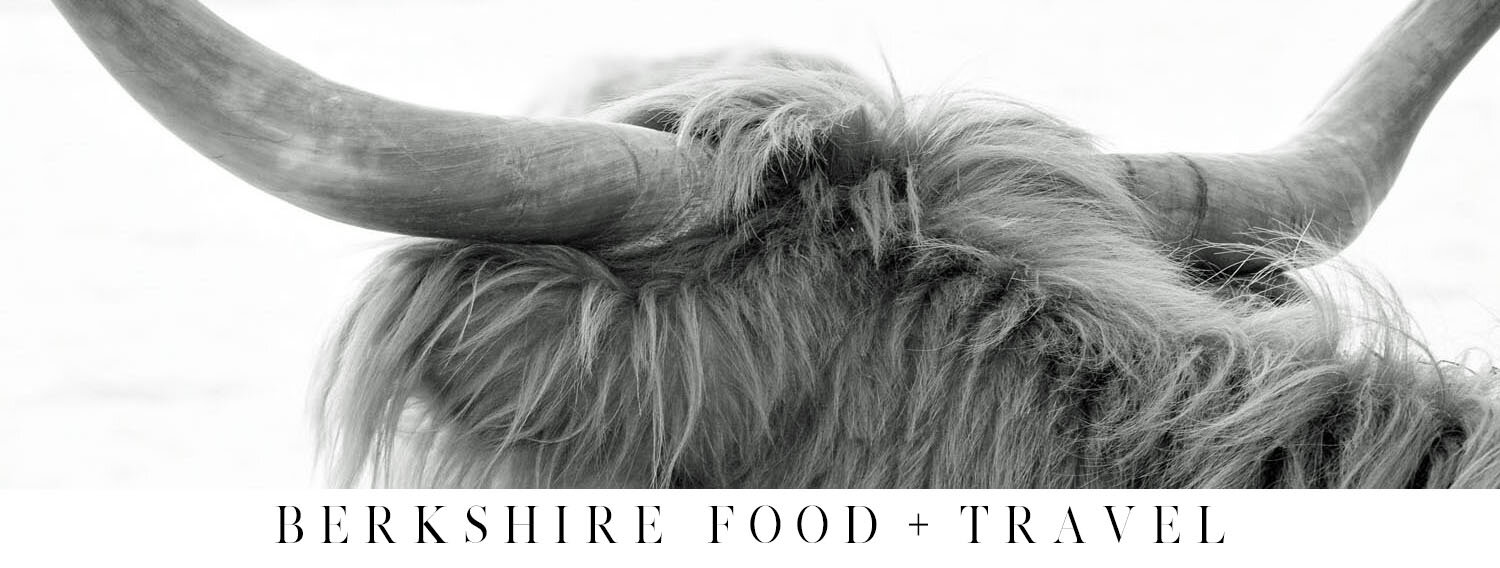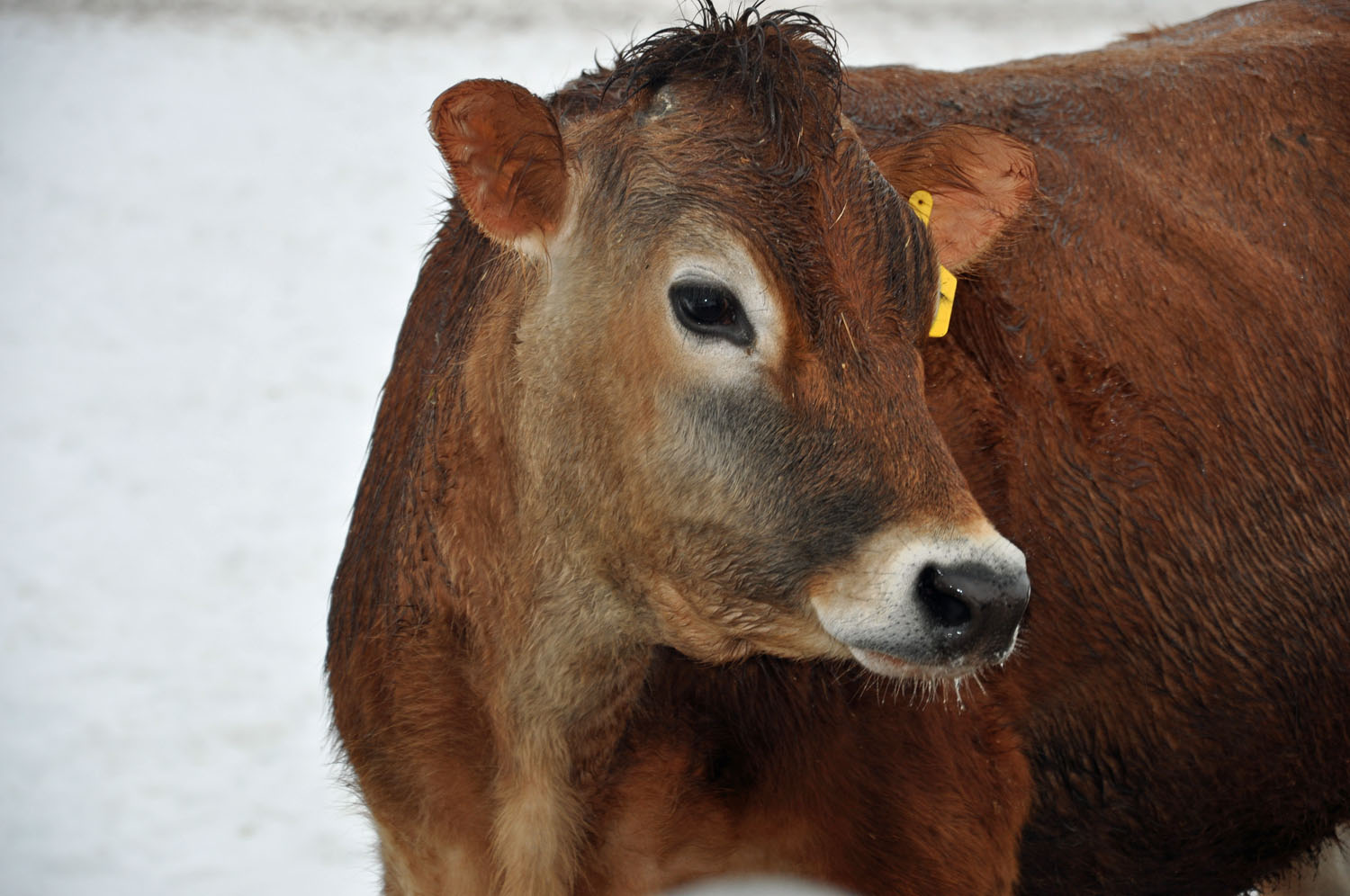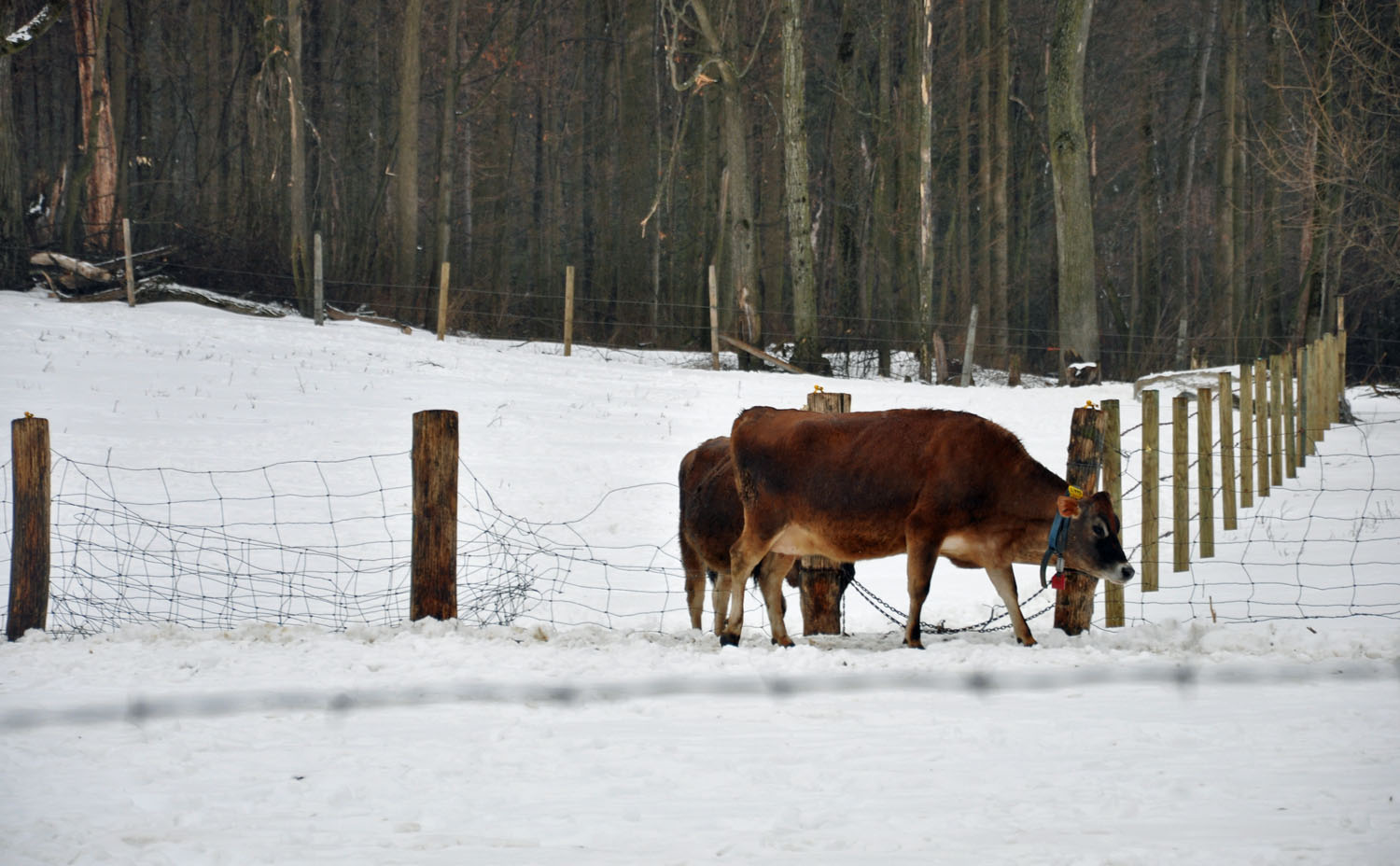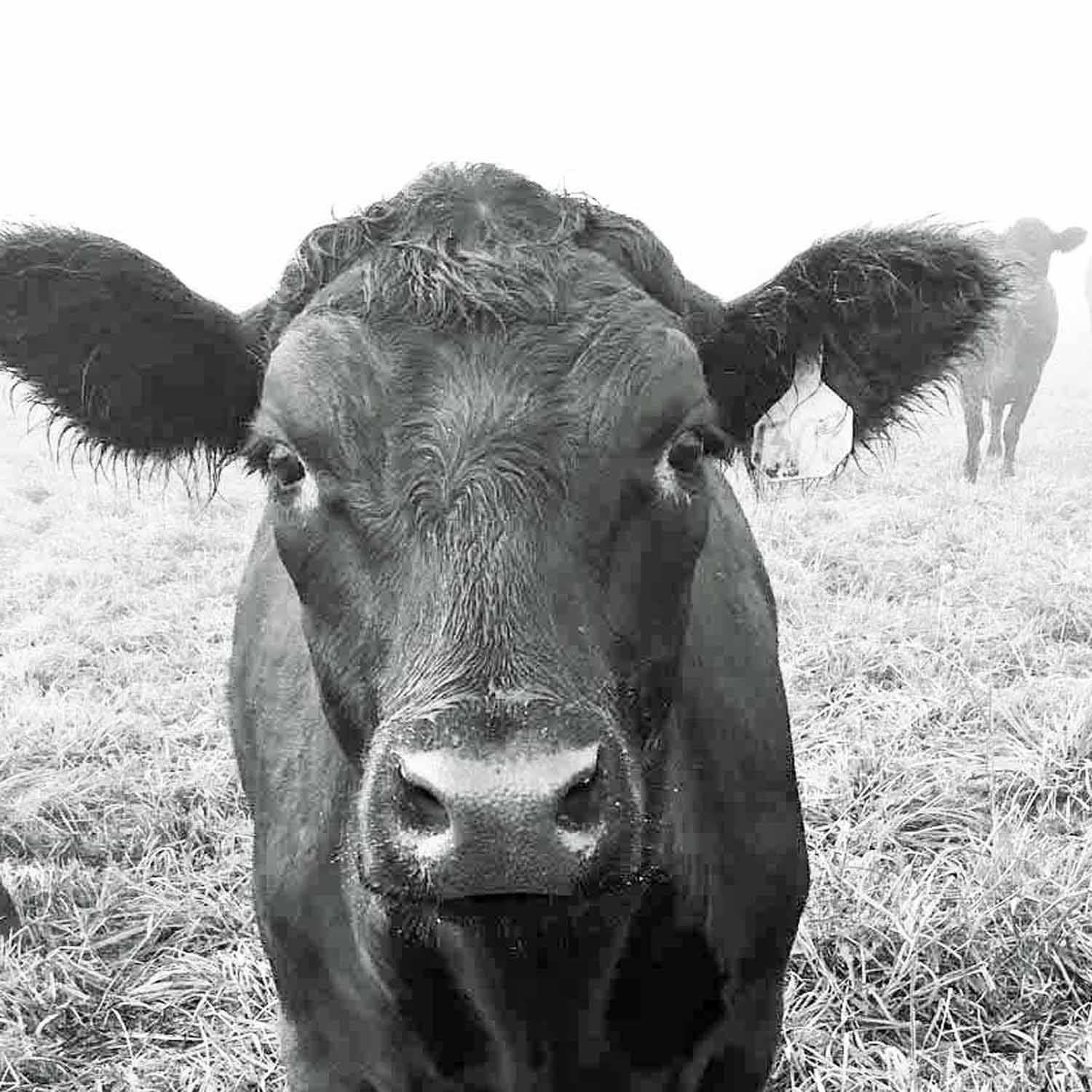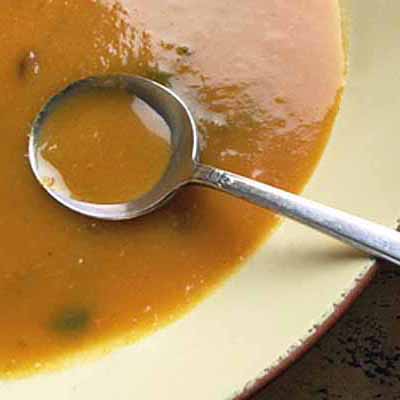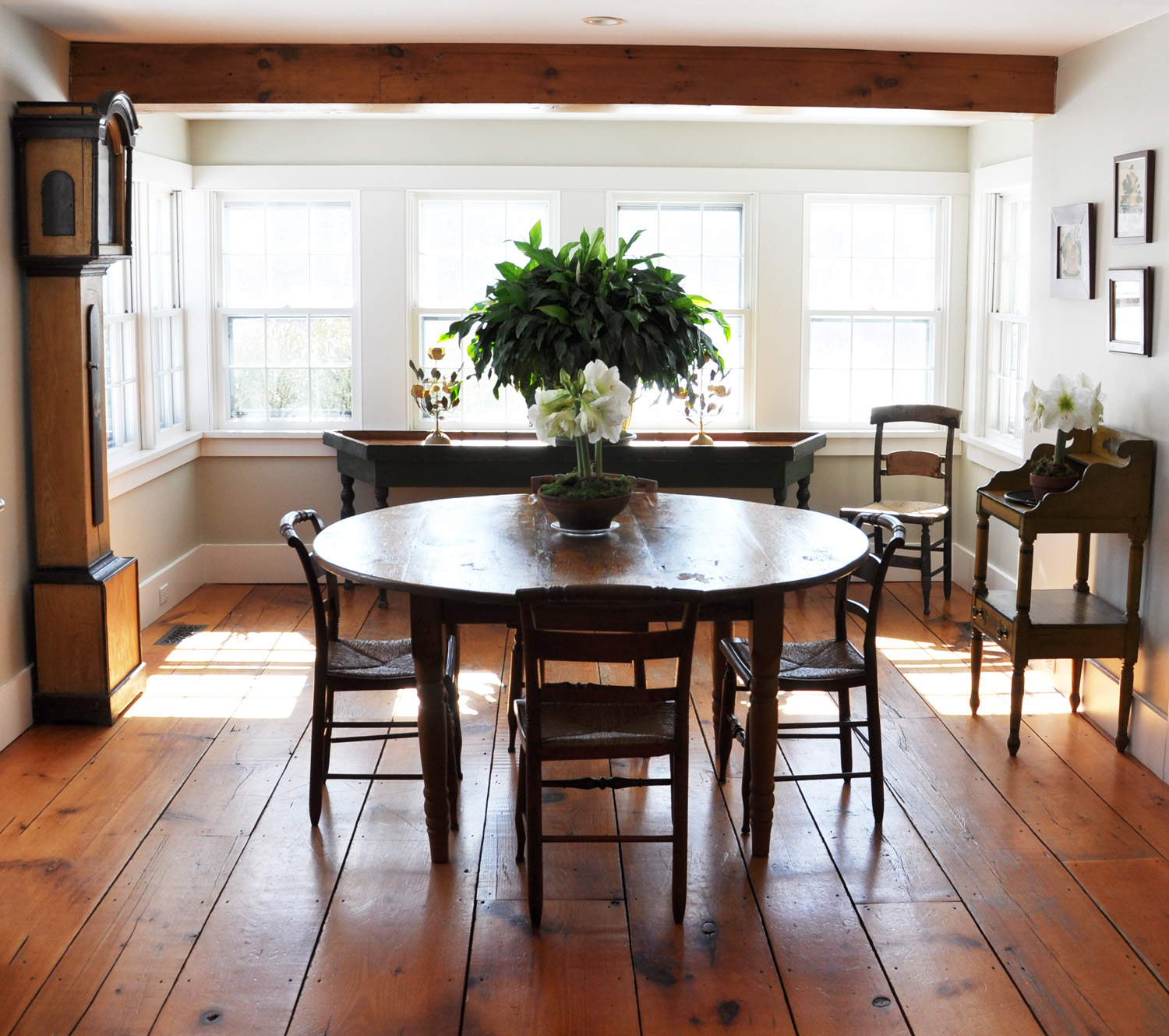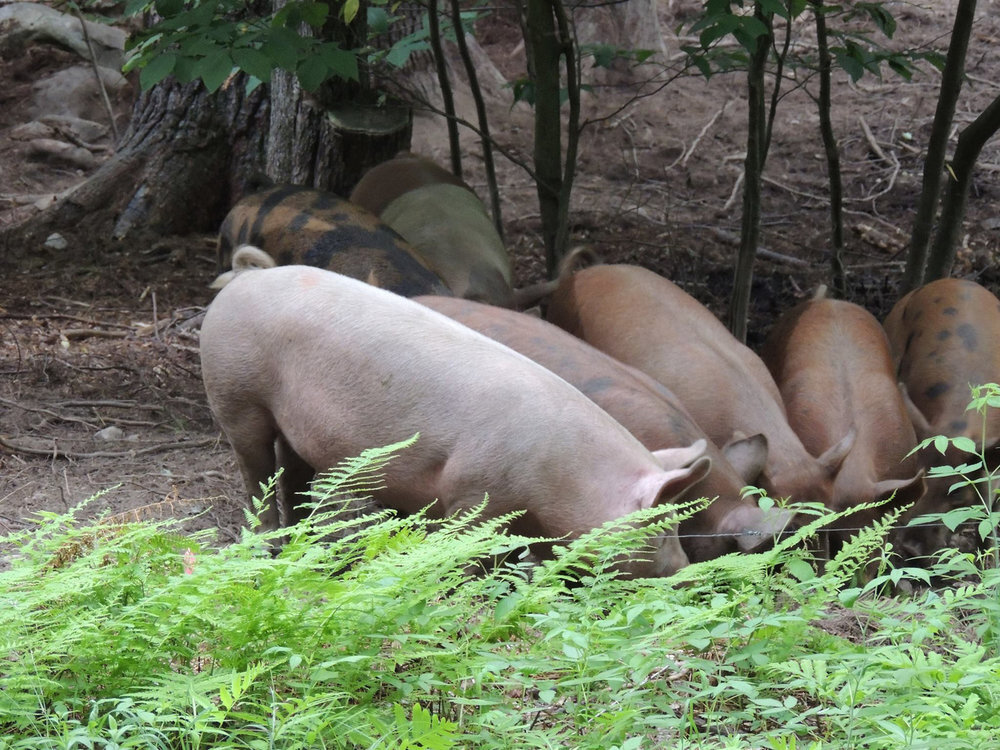HIGH LAWN FARM
High Lawn Farm’s Jersey cows are NOT from the Garden State. The breed originates from the Isle of Jersey in the English Channel, and they are easily distinguished from other cows because of their beautifully dramatic heads, with large eyes surrounded by contrasting shades of beiges and browns.
When you taste 100% Jersey milk, cream or butter, it has a rich sweetness that is exceptional. Chefs in the Berkshires know High Lawn’s milk and cream well – they’ve used it for years and rave about it:
· Peter Platt (Chef/ Owner The Old Inn on the Green): “I have used High Lawn dairy products exclusively for over twenty-five years. The low temperature batch pasteurization preserves the exceptional flavor of the 100% Jersey milk.”
· Brian Alberg (Executive Chef, The Red Lion Inn) “Knowing where my food comes from and how it is produced is very important to me and to my guests. That is why I use High Lawn cream - it is made from Jersey cows that produce a higher butterfat that makes for a richer more flavorful cream.”
· Michael Ballon (Chef/Owner, Castle Street Café): “High Lawn Farm cream makes the best frosting for wedding cakes - and I wouldn’t dream of using anything else. People always remark how light and delicious it is. I explain to prospective brides that the reason why wedding cakes have such a bad rap is that most really do taste terrible - but not ones made with High Lawn Farm cream.”
· Bjorn Somlo (Chef/ Owner Nudel Restaurant) “We use High Lawn dairy to add nuance, body, balance and most importantly character to the food we serve.”
· Deb Morgan (Executive Chef/ Kripalu) "Our guests love that the milk we provide from High Lawn is so pure and that it comes from a local source."
· Dan Smith (Chef/ Owner John Andrews Restaurant) "We use High Lawn milk and cream for making our house-made ricotta, which is really flavorful because of the butter content in their dairy. The ricotta comes out creamy and sweet, and we use it to produce a light, delicate gnocchi."
· Adam Zieminski (Chef/Owner café ADAM) “With so many dairies going by the wayside, we are extremely grateful to have High Lawn Farm cream and milk at café ADAM. Even though my great uncles ran a dairy farm in Cheshire, my father always told us that the Jersey cows on High Lawn Farm were some of the best in country. He was right.”
Located on a hill just outside of Lee, High Lawn Farm is small in scale with a staff of 26 and about 400 animals. It’s a family farm rooted deep in the community and the region. The Wilde family is in its 3rd generation of owning the Farm. They started processing milk in 1923, and for decades High Lawn has been a complete dairy farm in the Berkshires – producing, bottling and delivering milk.
When Colonel H.G. Wilde and Marjorie Field Wilde inherited ownership of the farm from Mrs. Wilde’s family in 1934, they recognized the value of having Jersey cows and took pride in these heritage cows achieving a high standard of performance, winning recognition from The American Jersey Cattle Club, the National Dairy Shrine and North American Jersey Cheese Awards. They chose Jerseys for the quality of their cream and their reputation as friendly cows.
Manager of the Farm, Roberto Laurens, says “The ‘why’ of why High Lawn is here is because of the communities and business support.” He emphasizes the early importance of home delivery for getting rooted in the community, and that the Farm has worked hard to develop longstanding relationships with restaurants, schools and markets. A team of five High Lawn trucks makes local and regional deliveries as far away as Boston. While most of the sales are closer - in Berkshire County and the surrounding region - delivering to Boston, Northampton and Springfield has helped balance out yearly sales.
Roberto says High Lawn appreciates the contributions of other dairy farms to the Berkshires, as that reinforces a strong community. The Osofsky family has been milking cows in the Hudson Valley for 70 years with Ronnybrook Farm Dairy, and opened its dairy plant in 1991 in Ancramdale, NY. Hawthorne Valley Farm, a Biodynamic farm in central Columbia County, has been operating for over 40 years. And now, the Leahey family is bringing back dairy production to the Leahey Farm in Lee, with a processing plant to produce bottled milk and frozen yogurt.
Guidos, the Berkshire Co-op and Berkshire Organics all carry High Lawn, as do small shops and supermarkets in the region, such as Big Y. “High Lawn doesn’t have a local store because merchants in the area stock the milk, so they help support the community that way. It’s sustainable”, says Beth White, High Lawn’s Business Developer.
She is encouraged that “farming is making a comeback. We’re local, so families can visit and we often give school tours. We’re proud to be restoring our buildings to what they were 100 years ago. While the farm is experiencing barn renovations and facilities upgrades, it should all be completed by September.” Visitors to the farm first notice the architecturally-impressive tower on the property, which has become a symbol of the farm.
The farm maintains 1500 acres of farmland and the cows feed off fresh grass in summer and the Farm’s corn and hay in winter. Beth feels that nutritional value is key to their milk: “With Jersey, the value is greater in protein, calcium and vitamin A and Vitamin B than other major dairy breeds. Jersey is also greater in nonfat solids.” Roberto adds, “We’re not organic - we’re local, all natural, pasteurized milk with regular pasteurization. We don’t use an ‘ultra-pasteurization’ process (which extends the life span but changes the chemistry).”
In addition to High Lawn’s popularity with chefs , the Farm delivers to colleges and schools, including Williams College, MIT, Leslie University, Emmanuel College and more. Kripalu and Canyon Ranch also use High Lawn. In the Berkshires, everyone knows about the quality of this 100% Jersey milk.
“There’s something grounding about being involved in agriculture”, says Beth. “It’s very rewarding being here - the land, the herd of animals and the quality products they help us deliver. We live in these houses around here. And we owe a big ‘thank you’ to our community for supporting us.”
(This article was originally published for edibleBerkshires February 2014)
VIEW FROM HIGH LAWN FARM
